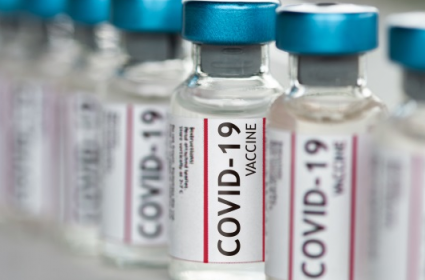India Revises COVID Vaccine Policy As Cases, Fatalities Multiply

Third Phase Of Covid-19 Vaccination Drive Starts On May 1st.
50 percent vaccines per centre.
The remaining 50 percent to state governments and private companies.
Companies must announce the prices of vaccines sold in the open market before May 1st.
Vaccination charges should be announced transparently by private hospitals.
Centre announcing third installment vaccination policy.
New Delhi: The Centre has decided to allow everyone over the age of 18 from May 1 to get vaccinated against Covid. As always, the government gives a free vaccine to those above 45 years of age. But it has now allowed private companies to vaccinate people between the ages of 18 and 45 by paying a fixed fee to them. About 50 percent of the total vaccines are reserved for the central government and the remaining 50 percent for state governments and private companies.
Private hospitals that procure Covid vaccines in the open market are required to transparently declare the fee they will charge for each dose of vaccine. The decision was taken at a meeting on vaccination policy chaired by Prime Minister Narendra Modi on Monday (April 19th).
The Prime Minister said the government has been working since last year to ensure that the maximum numbers of people are vaccinated in a short period of time. He clarified that India was vaccinating people at a world record pace and would continue to do so at a faster pace.
The government says the national Covid-19 vaccination strategy is built on a systematic, third-party, end-to-end approach that does not require assistance.
The centre, which had earlier approved vaccinations in the first two phases for high-impact groups, has now approved vaccinations for all those over the age of 18 from May 1st.
As a first step, the vaccine was made available to health workers and other frontline staff from January 16, 2021. The second phase, which began on March 20, allowed everyone over the age of 45 to be vaccinated.
Two domestically-made vaccines have been approved for emergency use namely covaxin and covishield. And recently, the government has given the green signal to the third foreign vaccine (Sputnik) too and allowed it to be made in the country in the future. In this context, the Centre has decided to further simplify the national vaccination strategy in the third phase and increase coverage.
The third stage of vaccination strategy is as follows:
Vaccine manufacturers are required to supply 50% of their monthly Central Drugs Laboratory Doses to the Central Government. The remaining 50% is allowed to be supplied to state governments, in the open market.
Government manufacturers are required to transparently announce the price of 50 percent of vaccines supplied by state governments to open markets before May 1. State governments, private hospitals, industrial companies, etc. are required to procure vaccines from manufacturers at this rate. Apart from the 50 percent vaccines allotted to the central government, private hospitals are required to procure vaccines from the other 50 percent. The vaccine is now available to anyone over 18 years of age.
Free vaccinations by the government will continue as before. As previously defined, the government provides free vaccinations to eligible populations, i.e healthcare workers, frontline workers, and everyone over the age of 45.
All prescribed rules must be followed before vaccination, whether by government or private.
The provision to give 50% to the Central Government and the remaining 50% to the State Governments and Private Companies applies to all vaccine manufacturers across the country. However, the Center allows state governments and private companies to use imported vaccines.
The Central Government allocates its share of vaccines to the states based on criteria such as the number of active Covid cases and performance (speed of administration). Vaccination is considered negative if the waste is high. Accordingly, the allocation of vaccines from the centre will be reduced. Based on the respective criteria, the quota is determined on a state-wise basis.
If the second dose is pending, it will be given due priority. For this, a centralized strategy is formulated and communicated.



























